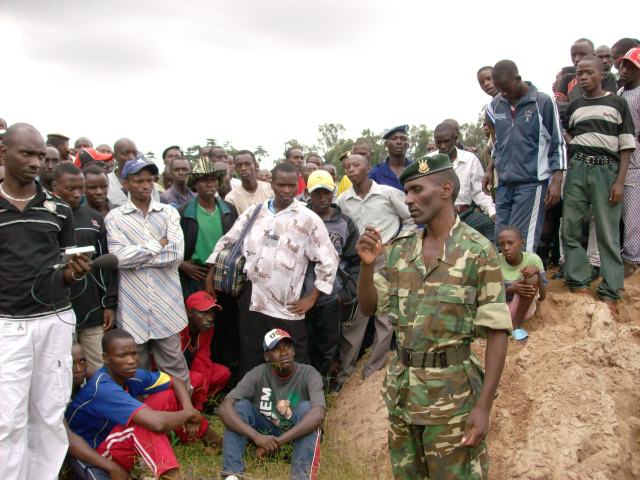The name change from Parti pour la Libération du Peuple Hutu-Forces Nationales de Libération (Palipehutu-FNL) to Forces Nationales de Libération (FNL) was announced on 9 January.
"The change of name is a way to being legalised as a political party," said the government representative in the Political Directorate, General Evariste Ndayishimiye.
Saying the FNL and government could now hold "positive talks on the legalisation process", Ndayishimiye urged the movement to "quickly contact" the Ministry of Interior, which is responsible for registering political parties.
The FNL had, since the return of its leader Agathon Rwasa from exile in May, demanded legal recognition as Palipehutu-FNL. Burundi's constitution prohibits ethnic references in the names of political parties.
"The change has been a sacrifice for the salvation of the country," Rwasa told reporters in Bujumbura on 9 January. "We thank all the partners in the [peace] process [and] call on all stakeholders to exploit it for stability of the country."
The FNL, he added, wanted its registration to be concluded as quickly as possible, and would not go back to war because all its commanders took part in a campaign to change the name and allow the peace process to move forward.
Paul-Simon Handy, head of the Africa security analysis programme in the Pretoria-based Institute for Security Studies, described the name change as a "breakthrough".
However, he told IRIN, it needed to be translated into concrete political and military steps such as the socio-economic integration of FNL troops.
The Political Directorate, which is negotiating with the FNL on behalf of the government, urged the parties to Burundi's peace talks to "resolve all outstanding issues preventing the verification and integration of the FNL into the national defence and security forces". It also called on the FNL to release children associated with the movement.
According to government mediator Kingsley Mamabolo, the name change should move the peace process forward. FNL combatants, for example, should now join the Rubira assembly zone (in Bubanza province) which is ready to welcome at least 2,000 of them.
"Some 117 FNL combatants are already settled there," he said. However, an agreement on disarmament, demobilisation and reintegration (DDR) has yet to be concluded.
"For now dates for the DDR cannot be set, we have to sit down and talk about it," Mamabolo said. "The job is not finished."
The Political Directorate urged the government to ensure, with support of the World Bank, that the necessary national structures for the DDR process are operational "as a matter of urgency".
bd/eo/mw
This article was produced by IRIN News while it was part of the United Nations Office for the Coordination of Humanitarian Affairs. Please send queries on copyright or liability to the UN. For more information: https://shop.un.org/rights-permissions




